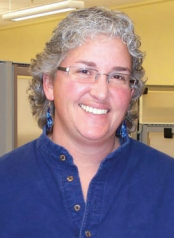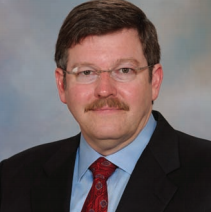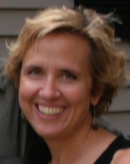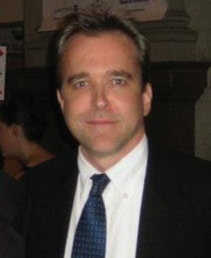 We are excited to offer four engaging short courses immediately before the 2013 CSE annual meeting in Montreal. These short courses provide a unique opportunity to learn about relevant publishing topics from experienced leaders in the scientific and medical journal community and are conveniently held at the same venue as the conference. The courses are specifically designed by and for editorial and publications professionals just like you. Attendees are encouraged to bring questions for discussion in a room full of like-minded people. Come to Montreal a day or two before the annual conference to learn from and with other journal editors, managing editors, manuscript editors, and publishing leaders. Increase the value of your CSE experience—expand your knowledge and skill set while sharing with your publishing colleagues.
We are excited to offer four engaging short courses immediately before the 2013 CSE annual meeting in Montreal. These short courses provide a unique opportunity to learn about relevant publishing topics from experienced leaders in the scientific and medical journal community and are conveniently held at the same venue as the conference. The courses are specifically designed by and for editorial and publications professionals just like you. Attendees are encouraged to bring questions for discussion in a room full of like-minded people. Come to Montreal a day or two before the annual conference to learn from and with other journal editors, managing editors, manuscript editors, and publishing leaders. Increase the value of your CSE experience—expand your knowledge and skill set while sharing with your publishing colleagues.
Short Course for Journal Editors
 Friday,3 May, and Saturday, 4 May— William Lanier, MD (editor-in-chief of Mayo Clinic Proceedings) will again coordinate this 2-day Short Course for Journal Editors. It is designed as an introduction for newly appointed editors and a refresher for experienced colleagues, providing a comprehensive survey of the roles and responsibilities of editors of scientific journals. There will be formal presentations on the fundamentals of editing, the editorial board, journal management, publishing ethics, operating business practices, and considerations for introducing a new publication or improving an established one. The group discussions are a key feature of the course: they provide an opportunity for detailed consideration of decision making, manuscript improvement, allegations of inappropriate behavior, and, most important, the issues that participants bring to the table.
Friday,3 May, and Saturday, 4 May— William Lanier, MD (editor-in-chief of Mayo Clinic Proceedings) will again coordinate this 2-day Short Course for Journal Editors. It is designed as an introduction for newly appointed editors and a refresher for experienced colleagues, providing a comprehensive survey of the roles and responsibilities of editors of scientific journals. There will be formal presentations on the fundamentals of editing, the editorial board, journal management, publishing ethics, operating business practices, and considerations for introducing a new publication or improving an established one. The group discussions are a key feature of the course: they provide an opportunity for detailed consideration of decision making, manuscript improvement, allegations of inappropriate behavior, and, most important, the issues that participants bring to the table.
Short Course for Publication Management
 Saturday, 4 May—Course Coordinator Amy McPherson (managing editor of the American Journal of Botany) and her experienced faculty will present and reinforce efficient and effective methods of managing a journal. This 1-day course will address the wide-ranging role of managing editors and publication managers and the challenges that they face daily. This is the basic course for those new to journal management; it is also designed to fill in the gaps and provide new ideas and perspectives for experienced managers. The keynote session of the course will be “Managing to Lead”. Further sessions will address managing communications and people; working with publishing partners; organizing workflow; working with editors-in-chief, associate editors, editorial boards, authors, and reviewers; and perspectives of editors, authors, and reviewers. Discussions will include current controversies in ethics, conflicts of interest, and open access.
Saturday, 4 May—Course Coordinator Amy McPherson (managing editor of the American Journal of Botany) and her experienced faculty will present and reinforce efficient and effective methods of managing a journal. This 1-day course will address the wide-ranging role of managing editors and publication managers and the challenges that they face daily. This is the basic course for those new to journal management; it is also designed to fill in the gaps and provide new ideas and perspectives for experienced managers. The keynote session of the course will be “Managing to Lead”. Further sessions will address managing communications and people; working with publishing partners; organizing workflow; working with editors-in-chief, associate editors, editorial boards, authors, and reviewers; and perspectives of editors, authors, and reviewers. Discussions will include current controversies in ethics, conflicts of interest, and open access.
Short Course on Journal Metrics
 Saturday, 4 May—Journal managers have a plethora of data at their fingertips. The Short Course on Journal Metrics, led by Angela Cochran (journals director at the American Society of Civil Engineers), will explore the kinds of data available to journal managers and why it is important to know about these data. Participants will learn different ways to collect, analyze, and present journal data to editorial boards; how to detect trends and analyze changes; how to use online usage data in conjunction with circulation data for marketing the journal; and the value of readership surveys and competition surveys. New this year will be a session on Altmetrics—a discussion of new ways to gather data.
Saturday, 4 May—Journal managers have a plethora of data at their fingertips. The Short Course on Journal Metrics, led by Angela Cochran (journals director at the American Society of Civil Engineers), will explore the kinds of data available to journal managers and why it is important to know about these data. Participants will learn different ways to collect, analyze, and present journal data to editorial boards; how to detect trends and analyze changes; how to use online usage data in conjunction with circulation data for marketing the journal; and the value of readership surveys and competition surveys. New this year will be a session on Altmetrics—a discussion of new ways to gather data.
The Short Course for Manuscript Editors
 Saturday, 4 May—Peter Olson (senior copy-editing coordinator at Dartmouth Journal Services) has designed this short course to introduce beginning editors to the tools of the trade and to enable seasoned editors to stay current and competitive in the field. The course will include a review of skills required for mechanical and substantive editing of scientific materials for publication and sessions on best practices in manuscript editing, including language editing, process efficiencies, and Word tips; editing of tables, including table structuring, data consolidation, and technical tips; working with authors, with an emphasis on effective and appropriate means of author querying; and ethical and legal issues that manuscript editors must address on an increasingly routine basis. The day will conclude with a roundtable discussion of various issues that manuscript editors face regularly.
Saturday, 4 May—Peter Olson (senior copy-editing coordinator at Dartmouth Journal Services) has designed this short course to introduce beginning editors to the tools of the trade and to enable seasoned editors to stay current and competitive in the field. The course will include a review of skills required for mechanical and substantive editing of scientific materials for publication and sessions on best practices in manuscript editing, including language editing, process efficiencies, and Word tips; editing of tables, including table structuring, data consolidation, and technical tips; working with authors, with an emphasis on effective and appropriate means of author querying; and ethical and legal issues that manuscript editors must address on an increasingly routine basis. The day will conclude with a roundtable discussion of various issues that manuscript editors face regularly.
Council of Science Editors – Social Media
Find us on Facebook: http://www.facebook.com/CouncilofScienceEditors
Follow us on Twitter: http://twitter.com/CScienceEditors
Join us on LinkedIn: http://www.linkedin.com (search for Council of Science Editors under Groups)
